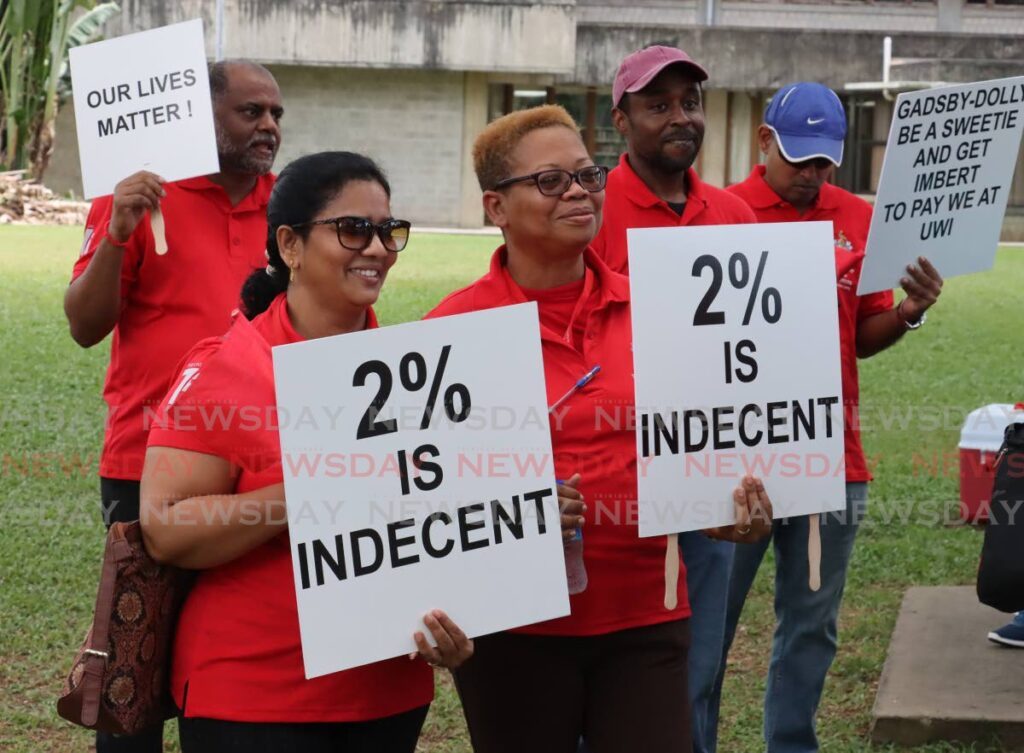Higher learning in the balance

Collective-bargaining stresses slowed operations last week at the University of the West Indies as the West Indies Group of University Teachers (WIGUT) stuck to their position that they will continue to withhold grades and examination papers until there is a satisfactory advance in negotiations on salary increases.
UWI lecturers were offered a two per cent increase by the Government last week, triggering the go-slow by lecturers who declared the offer insulting.
WIGUT has called for increases in the double digits, dismissing the Government's standard four per cent offer for public servants. But, the stalled negotiations don't only involve lecturers and UWI's administration.
The campus' Guild of Students issued a press release in April expressing concerns about WIGUT's "Operation Blackout" position, which called on lecturers to refrain from teaching, having tutorials and lab sessions.
Examinations scheduled for the end of April were rescheduled to mid-May because of the industrial action, which led to the late submission of question papers. WIGUT threatened to again be tardy with exam papers in response to the Government's October offer.
For her part, principal Prof Rose-Marie Belle Antoine has been sympathetic to the plight of lecturers, acknowledging that teachers were still being paid at 2014 rates and had not even kept up with those paid to teachers in UWI institutions in other islands.
Government's contributions to UWI dropped from $529 million in 2021 to $485 million in 2022 and UWI must rely on guidance from the Chief Personnel Officer who sets the rate of salary increases. Public servants were offered a four per cent increase in their salaries by the CPO in May 2022 to cover the negotiation periods 2014-2016 and 2017 to 2019.
In September 2022, Finance Minister Colm Imbert estimated that the four per cent increase would cost the Government $2.43 billion in back pay and add a recurring cost of $419 million annually to the public sector wage bill. In the 2023, $1 billion was allocated in back pay for the 37,000 public sector workers who have accepted the increase.
For now, the student response to the go-slows and withdrawal of enthusiasm by UWI lecturers has been one of concern, but students have taken their own action at the university in response to lecturer strikes.
In 2015 concerned students formed human barricades at the St Augustine campus to protest the delay in release of their grades as lecturers protested the tardy payment of their negotiated back pay. Studies suggest – and recent student experience under covid lockdown made clear – that teacher presence and engagement are crucial for student success. UWI's lecturers deserve fair recompense for their work, but the university's students, who are paying handsomely for their education, must become a more compelling factor in these negotiations.


Comments
"Higher learning in the balance"